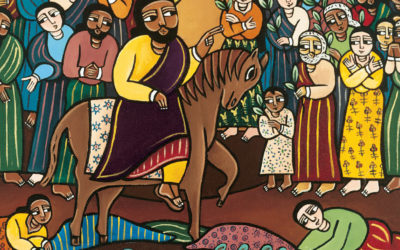When I was 19 I took a weekend field trip with my Christian Faith and Ethics class to visit Chicago.
We toured the city to meet people doing God’s work across a multicultural landscape.
We met a pastor who ministered among young gang members in a predominantly Mexican-American neighborhood. We spent the night in a homeless shelter with East Asian immigrants in another neighborhood. We ate dinner with a group that provided free health care for low-income families in Humboldt Park, a neighborhood famous for its Puerto Rican pride.
Finally we visited Devon Avenue, known for authentic Indian restaurants and shops full of beautiful saris. We met a man on a street corner who warned passersby of what could happen if they didn’t accept Christ as their personal savior.
Now I’m not telling you this story to convince you that any of these ministries is better than the others. This man may have believed yelling at people would make the most impact. There may even have been people on Devon Avenue who were happy that he was there.
But at age 19, with my sense of injustice and my surety of self turned all the way up, I did not think this last ministry was as necessary to the world—or to my education—as the first three. And I let everybody have a nice, heaping dose of my opinion before I stomped off down the street and refused to listen to anything the man—or my instructors—had to say.
I’m not particularly proud of this. Instead of getting angry, I wish I had asked the man—or my classmates and instructors—to consider whether God’s story is mainly a story of condemnation or of love, and whether God would have us share this story in a different way. But I was still learning how to best use my voice to stand up for what I believe.
As we continue the second session of our Bible study on Esther, author Kay Ward writes that “patience and wisdom are required to know when it is time to keep silent and when it is time to speak and act.” She admits that this can be “a challenge” (p. 20).
Even if you’ve never thrown a tantrum on a sidewalk, haven’t there been times when you just wanted to say what you felt—never mind the consequences—or have someone immediately understand your point of view?
These days I don’t often feel the need to give strangers a piece of my mind. Usually I can see that it’s not likely to solve much. But there are other times—when a friend makes an inappropriate joke, or I see a stray soda bottle on the sidewalk—when doing nothing becomes too easy.
Which can also be a problem, can’t it?
God calls us, like Esther, to be patient and considerate in our interactions with one another. But we’re still called to act. Catherine Malotky reminds us, “[Esther] bravely chose to act, even knowing she could lose her life for daring to initiate communication with the all-powerful king” (p. 48).
Katie Hines-Shah puts it this way: “Jesus calls us, his followers, to a new way of life—a way of grace” (p. 14).
God implores us not to hold back our voices for times when it’s convenient or when we’re comfortable. We’re called to act on our faith now, with love and compassion—for just such a time as this.
Sarah Carson is associate editor of Gather.
This article is from the July/August 2019 issue of Gather magazine. To read more like it, subscribe to Gather.
For more like this:
The meaning of “Hosanna!”
by Julie Seymour— When I see a painting of Jesus riding into Jerusalem on the colt, sometimes it looks to me as if he has indigestion. It’s a strange look for someone who is receiving a parade in his honor. Or maybe it’s not so strange, if we think about the message...
Here and now
by Elizabeth Hunter— For me the words "Here and Now" are forever connected with a 30-year-old song by the late Luther Vandross. He won a Grammy for soulfully singing: “Here and now, I promise to love faithfully. …Your love is all I need.” His song is also known as an...
Sticky stories
by Elizabeth Hunter— I used to write my favorite funny or encouraging quotes on sticky notes. I’d clip cartoons and inspiring images from newspapers and magazines. Magnets, tape and pins were corralled in a drawer so that I could daily see—and share—food for thought...






Thanks Sarah, you were spot on. There have been a few times when I wished that I had held my tongue and times I wish I had spoken up.
It has definitely been a process of trial-and-error for me, unfortunately! Thanks for your comment, Patti!
Sarah
Sarah, I am 76 years old and still have difficulty holding my tongue during moments of my life. Keep up the faith and inspiration you have and share with others. Sharon
Ha! Thanks, Sharon. It’s good to know we are all sharing in the struggle regardless of our age!